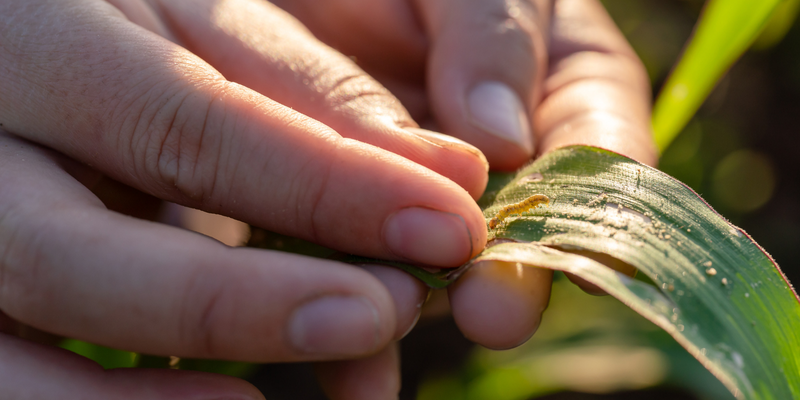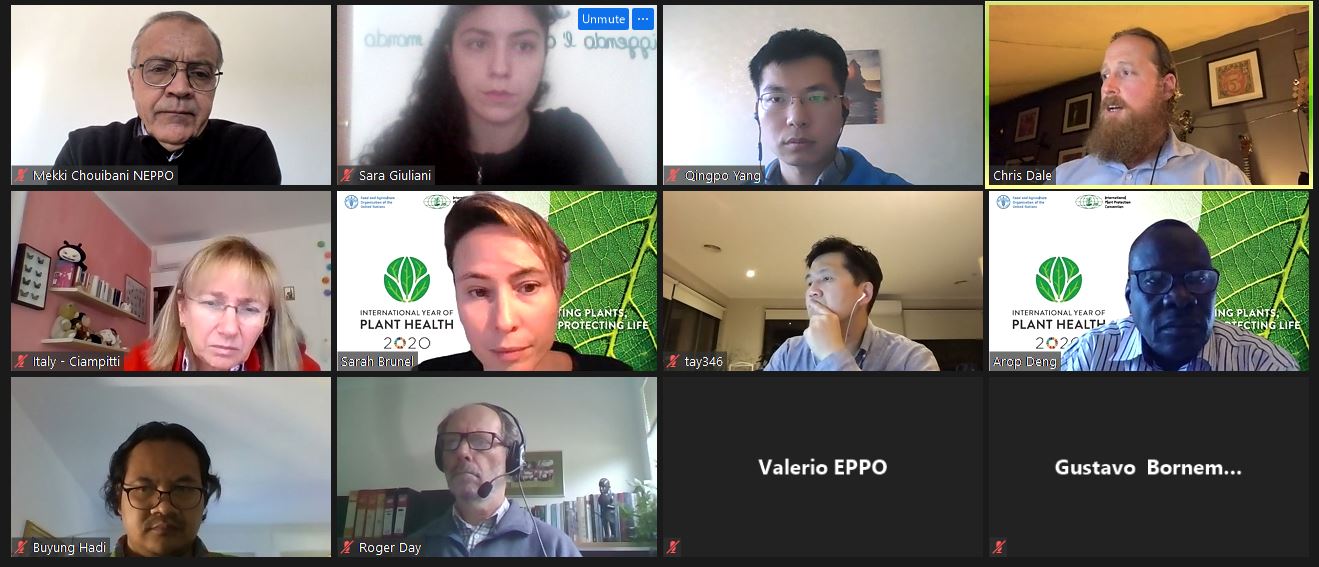Moving forward the IPPC work on Fall Armyworm prevention
Posted on Wed, 04 Nov 2020, 09:02

Rome, 28 October 2020. The FAO/IPPC Technical Working Group (TWG) on Quarantine and Phytosanitary in relation to Trade met on Wednesday 28 October to advance its work programme on Fall Armyworm (FAW) prevention and preparedness as part of the FAO Global Action for FAW Control.
The TWG agreed to prioritize activities and actions to help countries reduce further spread of FAW to new areas. The development of global and harmonized guidelines on FAW prevention is certainly one of the key priorities of the TWG for the second quarter of 2020. With the contributions of Regional and National Plant Protection Organizations, as well as partner organizations, the IPPC is now preparing the first FAO guidance on FAW prevention to be then presented and validated at the regional and national level through workshops and training activities.
By endorsing a three-year implementation plan, the TWG committed to supporting around twenty target countries in preventing FAW introduction and spread to areas where it is absent or of limited distribution during the period 2020-2022. In particular, regional and national training courses on pest risk assessment, preventive measures, such as surveillance and inspection are planned to be conducted in Europe, Near East and North Africa, and the Pacific during the biennium 2021-2022. Improving coordination with relevant IPPC contracting parties, strengthening their phytosanitary capacity, and involving regional and national stakeholders to better implement the Global Action in those countries at higher risk of FAW outbreaks are other key priorities included in the TWG work programme and discussed during the meeting.
A webinar will be launched at the end of November to inform IPPC contracting parties and partner organizations about FAO’s Global Action and the role of the IPPC community as a key player in this initiative. The event will provide updates from Mr Jingyuan Xia, FAO Plant Protection and Production (NSP) Division Director, and other qualified FAO experts on the status of FAW in the world and the solutions FAO and the IPPC are working on to help countries implement phytosanitary measures against this pest to protect their territories. Updates from the Regional Plant Protection Organization representatives will clarify the status of the pest in the three target areas at higher risk of FAW introduction and outbreaks: Europe, Near East, and the Pacific.
A detailed programme of the event will be available soon on the IPPC website and circulated among relevant stakeholders.
The report of this meeting will be available soon at this link: https://www.ippc.int/en/the-global-action-for-fall-armyworm-control/4th-meeting-faoippc-on-fall-armyworm-faw/


